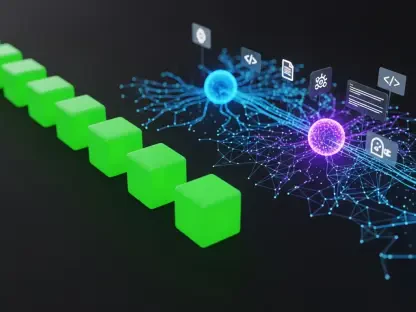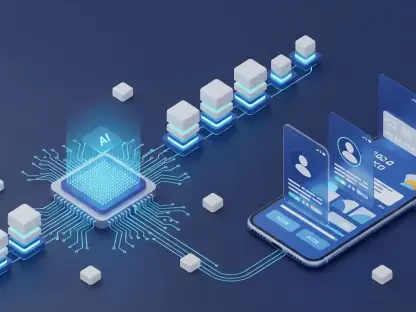This guide aims to help readers understand and implement Agent Definition Language (ADL) within Eclipse LMOS to streamline AI agent development. By following the detailed steps and insights provided, enterprises and developers can achieve a more accessible, collaborative, and scalable approach to creating intelligent systems that meet modern demands. The significance of this transformation lies in addressing the complexities of traditional AI development while fostering innovation in open-source environments.
The integration of ADL into Eclipse LMOS marks a turning point for organizations grappling with the challenge of designing AI agents that align with business needs. Consider a scenario where technical teams struggle with intricate prompt engineering, while business stakeholders remain sidelined due to a lack of accessible tools. This gap often results in delayed projects and misaligned outcomes. ADL, as part of an open platform, offers a structured solution to bridge these divides, simplifying agent behavior definition and enabling seamless collaboration.
The purpose of this guide is to demystify how ADL revolutionizes AI agent development within Eclipse LMOS, providing a clear pathway for adoption. Enterprises stand to benefit from a framework that not only enhances interoperability across diverse AI ecosystems but also integrates with existing infrastructure. By delving into this transformative approach, readers will gain practical knowledge to navigate the evolving landscape of AI orchestration.
Understanding the Foundation of Eclipse LMOS
Eclipse LMOS serves as a robust open platform designed to facilitate interoperability and integration across varied AI ecosystems. Built on widely accepted standards like Kubernetes, it ensures compatibility with modern enterprise systems. Major organizations, such as Deutsche Telekom, have already adopted this platform for production environments, demonstrating its reliability in real-world applications.
Unlike proprietary systems that often lock users into specific tools and workflows, Eclipse LMOS champions openness in AI development. This approach allows for greater flexibility and innovation, enabling organizations to tailor solutions to their unique needs. The platform’s commitment to vendor-neutral solutions sets a benchmark for accessible AI system design.
The introduction of ADL into this ecosystem represents a logical evolution in tackling the limitations of conventional AI practices. Traditional methods, such as complex prompt engineering, often pose barriers to efficient agent creation. By integrating ADL, Eclipse LMOS provides a framework that simplifies these processes, paving the way for broader participation and streamlined development.
Step-by-Step Guide to Leveraging ADL in Eclipse LMOS
Step 1: Simplifying Agent Behavior with a Model-Neutral Language
Begin by utilizing ADL’s structured, model-neutral language to define AI agent behaviors with greater ease. This approach eliminates the intricacies of traditional prompt engineering, replacing them with intuitive tools that make agent design straightforward. Developers can focus on functionality rather than grappling with underlying complexities.
For those new to AI development, ADL offers a significant advantage by providing clarity in behavior specification. This structured language ensures that agent actions are consistent and predictable across different models. As a result, even teams with limited technical expertise can contribute effectively to the design process.
Unlocking Accessibility for Non-Technical Users
A key feature of ADL is its visual toolkit, which empowers business domain experts to engage directly in agent design. This accessibility breaks down barriers between technical and non-technical stakeholders, allowing for input from diverse perspectives. Such inclusivity ensures that agents are built with real-world applicability in mind.
Step 2: Fostering Collaboration Between Teams
Next, leverage ADL to establish a shared framework that facilitates collaboration between engineering teams and business stakeholders. This common language enables both groups to co-define agent behaviors, ensuring alignment with organizational goals. Consistency in design becomes achievable through this unified approach.
Collaboration through ADL also enhances the maintainability of complex agentic systems. By involving multiple perspectives during the design phase, potential issues can be identified and addressed early. This proactive engagement reduces the likelihood of costly revisions down the line.
Enhancing Reliability Through Shared Input
Incorporating input from varied teams directly improves the reliability of AI agents. Business stakeholders bring domain-specific knowledge that complements technical expertise, resulting in more robust solutions. This synergy fosters trust in the system’s outputs and ensures relevance to practical needs.
Step 3: Seamless Integration with Enterprise Infrastructure
Integrate Eclipse LMOS, powered by ADL, with existing enterprise IT systems to maximize compatibility and efficiency. Utilizing technologies like Kubernetes and Istio, the platform aligns with DevOps practices, ensuring smooth adoption. This integration protects prior investments while enabling innovative AI solutions.
The ability to work within established systems is a cornerstone of Eclipse LMOS’s appeal. Organizations can deploy AI agents without overhauling their infrastructure, minimizing disruption. This adaptability makes the platform a practical choice for large-scale enterprise environments.
Ensuring Scalability in Large Deployments
ADL supports scalability by enabling AI agents to handle extensive operations without performance hiccups. In large deployments, the platform’s architecture ensures that resources are allocated efficiently. Enterprises can confidently expand their AI initiatives, knowing the system can manage increased demand.
Step 4: Supporting Comprehensive Agent Lifecycle Management
Utilize the broader architecture of Eclipse LMOS to manage the full lifecycle of AI agents. This includes using ADL for behavior definition, the LMOS ARC Agent Framework for development and testing with a Kotlin runtime, and the alpha-stage LMOS Platform for orchestration and observability. Together, these components provide a holistic management approach.
Each element of Eclipse LMOS contributes to a streamlined process, from creation to deployment. The framework ensures that agents are not only built effectively but also monitored and adjusted as needed. This end-to-end oversight is critical for maintaining system integrity over time.
Prioritizing Transparency in Agent Operations
Transparency remains a priority through the observability features of the LMOS Platform. These tools allow organizations to monitor agent performance and behavior in real time, fostering trust in AI systems. Clear visibility into operations helps address issues promptly, ensuring consistent outcomes.
Key Benefits of ADL Integration in Eclipse LMOS
- Simplifies agent behavior definition with a structured, model-neutral language.
- Enables collaboration between technical and business teams for reliable agent design.
- Integrates seamlessly with enterprise infrastructure for scalability and adoption.
- Supports comprehensive lifecycle management with transparent orchestration tools.
The Broader Impact on Open AI Development
The alignment of ADL and Eclipse LMOS with industry trends toward openness and collaboration signifies a shift in AI development paradigms. This open-source approach challenges the dominance of proprietary systems by offering flexible, vendor-neutral solutions. Enterprises can innovate without being constrained by restrictive ecosystems.
Democratization of AI development is another profound impact of this integration. By including non-technical stakeholders in the process, the platform accelerates time-to-market for AI solutions. Agents designed with diverse input better reflect real-world needs, enhancing their effectiveness in practical applications.
Looking ahead, challenges such as evolving enterprise demands and the continued refinement of the LMOS Platform will shape the platform’s trajectory. From this year onward, ongoing development will likely focus on addressing these needs with enhanced features. This forward-thinking perspective positions Eclipse LMOS as a competitive force in the AI landscape.
Final Reflections on Transforming AI Development
The journey through leveraging ADL within Eclipse LMOS reveals a transformative path for AI agent development, marked by simplified design, enhanced collaboration, and seamless integration. Each step taken highlights a commitment to accessibility and scalability that reshapes traditional approaches. Enterprises that adopt this framework experience a notable shift in how intelligent systems are crafted and deployed.
Moving forward, the focus shifts to exploring further enhancements and integrations within Eclipse LMOS to address emerging challenges. Organizations are encouraged to delve deeper into the platform’s capabilities, considering how its open-source nature can unlock new opportunities. This evolution promises to redefine the boundaries of AI innovation, offering a sustainable model for future growth.









